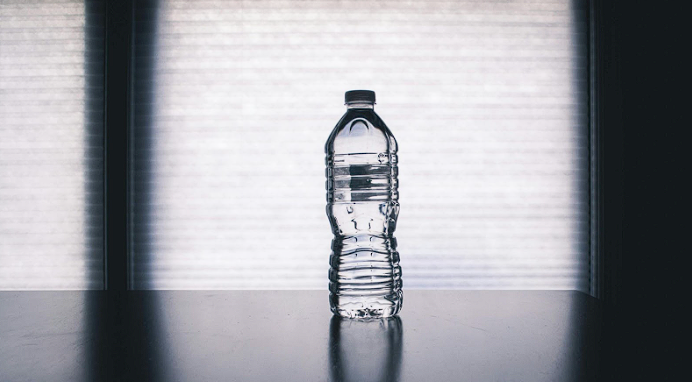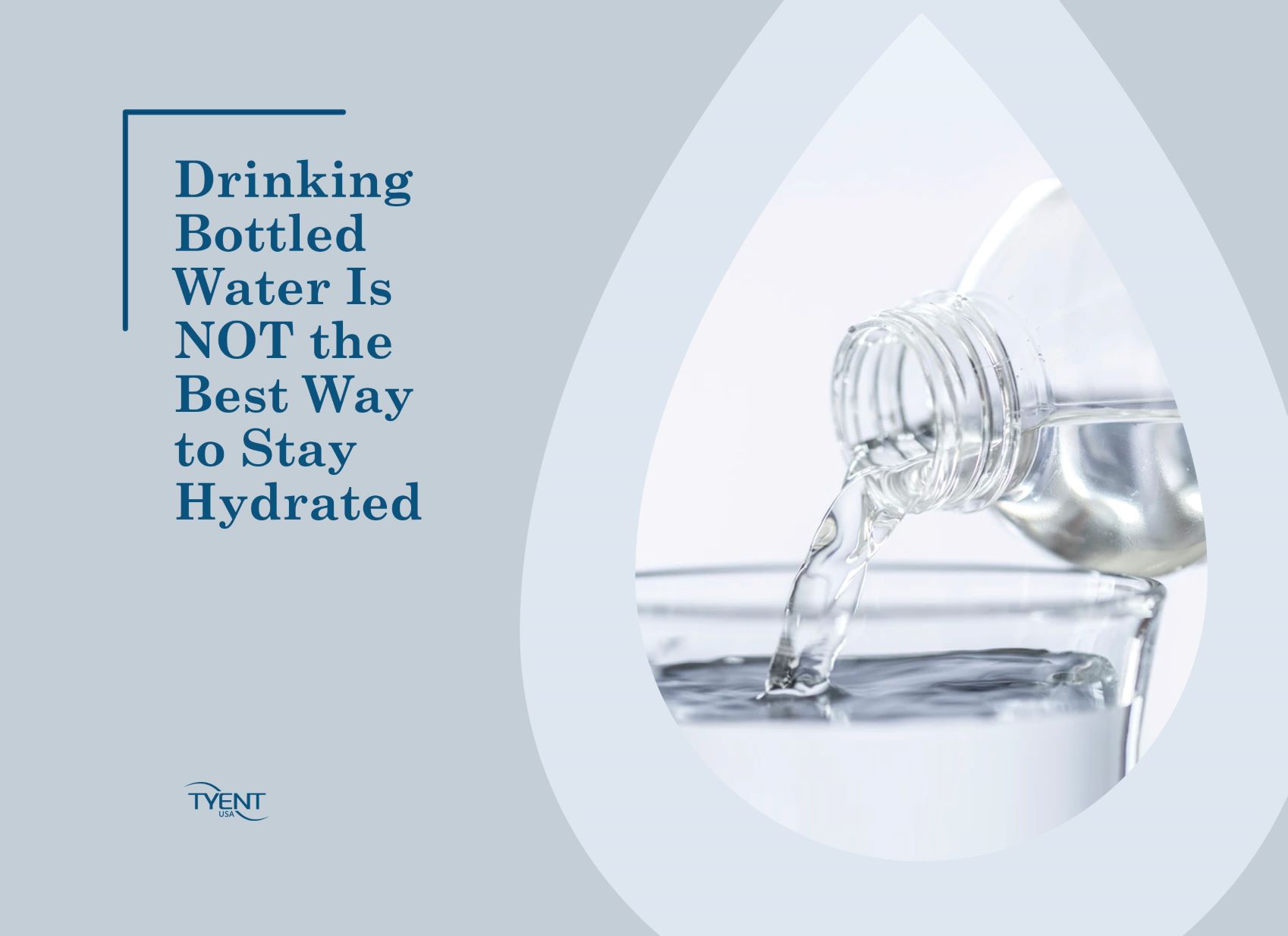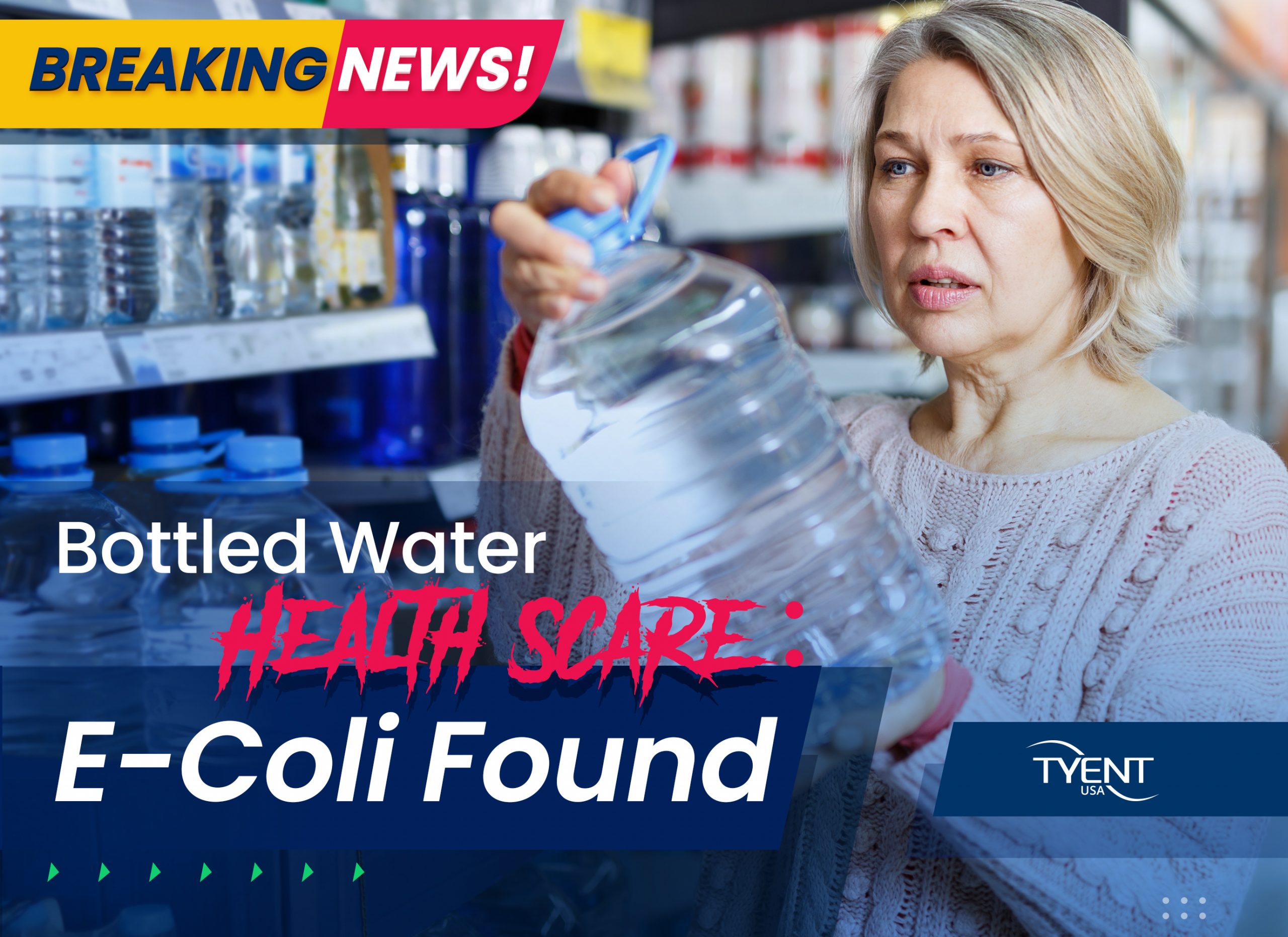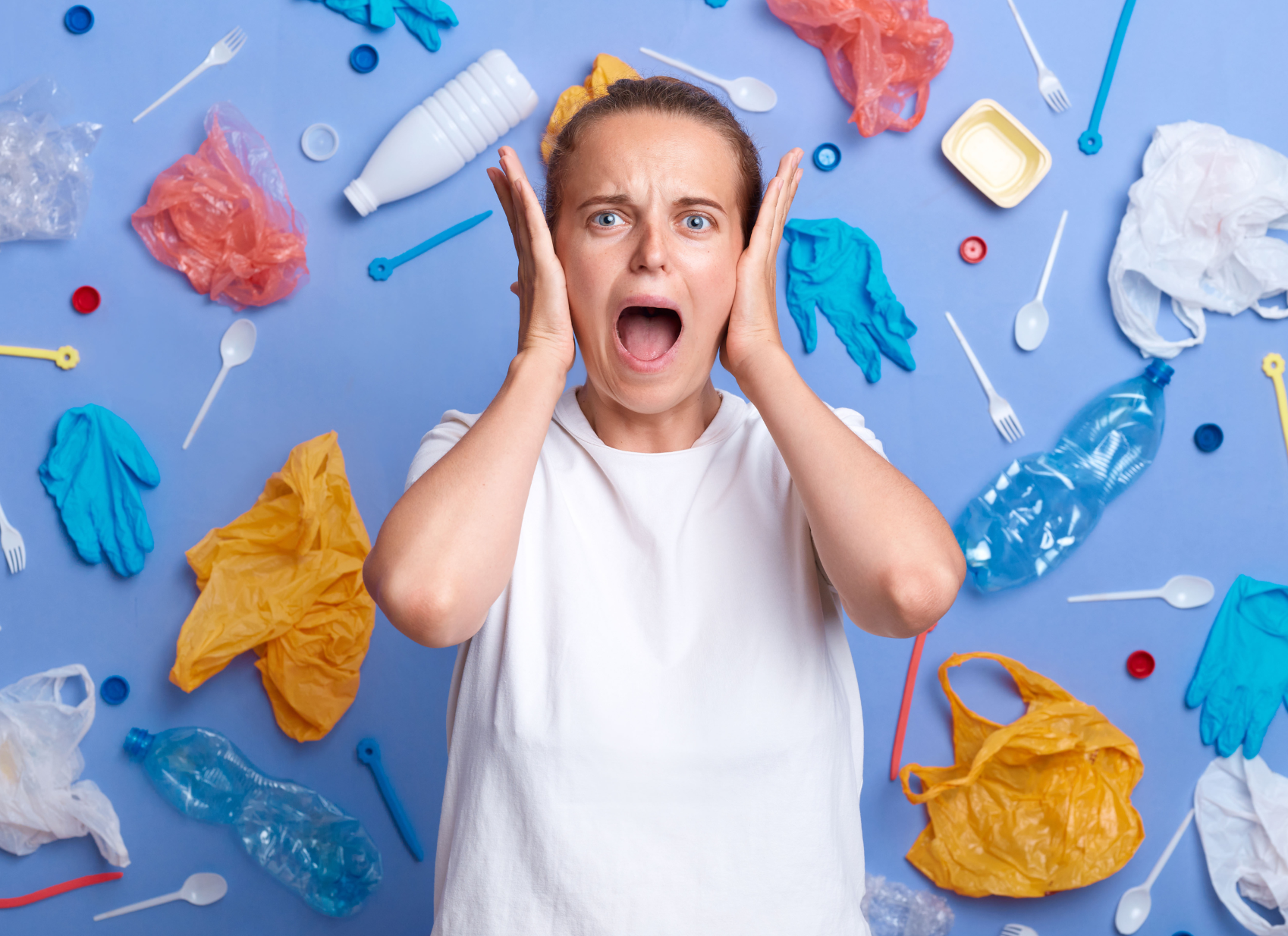Key Takeaways:
- Bottled water is no safer than tap water—in fact, some bottled water is just tap water.
- Studies show that most bottled water contains chemicals and microplastics.
- Frequent recalls suggest quality control issues with bottled water, and studies have found bottled water is often contaminated.
- Many types of bottled water brands are also acidic and/or lack essential minerals.
- Some bottled water brands contain harmful additives.
- Tyent Portable Hydrogen Water Bottle is the best way to stay hydrated on the go, offering the health benefits of hydrogen-infused water along with advanced filtration capabilities.
- A Tyent ionizer is a superior alternative to bottled water, providing water free from over 200 pollutants while delivering the benefits of both alkaline and hydrogen-rich water.
Approximately 500 billion plastic bottles are used globally each year, with the U.S. alone discarding 35 billion empty water bottles annually. You might have already heard about the damage these water bottles do to the environment, with 91% of the world’s plastic water bottles not being recycled. But do you know about the damage bottled water does to your body?
Is bottled water safe to drink? Let’s explore the safest bottled water brands and the best alternative for your health.
Is Bottled Water Safe to Drink?
Bottled water isn’t as safe to drink as some may think. States are responsible for regulating bottled water that is produced and sold within their borders, but one in five states don’t actually regulate bottled water. While tap water in most cities is disinfected, tested for viruses, and filtered to remove contaminants, bottled water doesn’t always have these same measures in place. Bottled water is also tested for bacteria and other chemicals less frequently than tap water.
A study by the National Resource Defense Council found there is no assurance that bottled water is safer than tap water. Perhaps even more egregious, about 25% of water sold in a plastic bottle is just tap water. Sometimes it’s treated, but not always.
The fact that bottled water is no safer than tap water raises many concerns, especially considering tap water itself is not always a safe option. But bottled water, unfortunately, is not the solution.
Bottled Water Health Risks
Bottled water is harmful for many reasons. The increased use of plastic harms the environment, while the cost of frequently buying bottled water hurts your wallet. But drinking bottled water can also have negative effects on your body.
Chemical Contaminants and Microplastics
In a study of 47 bottled water brands, Consumer Reports found arsenic, cadmium, lead, mercury, and 30 PFAs (aka forever chemicals) in samples. Another study from Columbia University and Rutgers University found at least 240,000 plastic particles in the average liter of bottled water.
Long-term exposure to arsenic through drinking water has been linked to multiple types of cancers and other adverse health effects. Cadmium has also been tied to cancer, as well as kidney, bone, and lung diseases. Drinking lead can lead to lead poisoning, which can be fatal, while mercury can cause a loss of vision, impaired cognitive ability, and muscle weakness.
PFAs are also tied to multiple types of cancer, developmental delays in children, loss of fertility, and many other negative health effects, and exposure to microplastics causes similar issues.
If you’re concerned about contaminants in your water, you can rest easy with a Tyent ionizer and the Tyent hydrogen water bottle. Both remove more than 200 contaminants, using the same filtration level as kidney dialysis machines
Contamination and Quality Control Issues
In 2024 alone, several brands had to recall millions of bottles of water. Berkeley Club Beverages Inc. had to recall 1,034 bottles due to testing positive for coliforms, FIJI Water recalled more than 78,500 cases of water, or almost 1.9 million bottles due to manganese and three types of bacteria, and Waiakea Hawaiian Volcanic Water had to recall more than 3,800 cases due to “floating particles.”
These recalls show that the bottled water that ends up on the shelves isn’t always as safe as you’d expect, suggesting quality control issues. And even if bottles aren’t recalled, they still may be unsafe, as a study by the Environmental Working Group found that 10 of the most popular brands of bottled water in the United States contain mixtures of 38 different pollutants, including industrial chemicals, Tylenol, and fertilizer.
pH Imbalance and Mineral Deficiencies
Many types of bottled water, including Dasani and Aquafina, have pH levels lower than 7.0, which makes them acidic. Drinking acidic beverages can wear down your tooth enamel over time, doing serious damage to your oral health.
Multiple types of water bottle brands also filter their water through reverse osmosis. While reverse osmosis filters out pollutants, it also removes essential minerals. Long-term reliance on reverse osmosis water has been linked to higher morbidity and mortality rates from cardiovascular disease, increased risk for certain cancers, and developmental delays in children.
Fluoride and Additives
Some bottled water brands include certain additives in their water, like fluoride. While fluoride may have some health benefits, drinking fluoride excessively can harm the body. Too much fluoride can cause skeletal and dental fluorosis, which can lead to osteoporosis, arthritis, and even paralysis. Fluoride has also been tied to allergic manifestations, gastrointestinal problems, and neurological disorders.
Safest Bottled Water
Bottled water generally isn’t the safest option, but let’s take a look at some of the safest bottled waters available today.
1. Tyent Portable Hydrogen Water Bottle
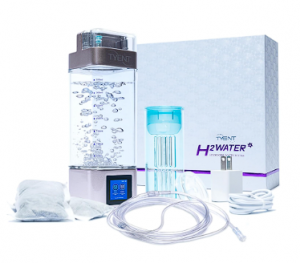
The Tyent Portable Hydrogen Water Bottle is the best way to get clean, safe water on the go. With a built-in filtration system and activated carbon filter, you can rest assured you get clean water wherever you are. But Tyent goes even further to make your water more hydrating and energy-boosting. Tyent’s Portable Hydrogen Water Bottle delivers up to 900 parts per billion (PPB) of molecular hydrogen—nine times higher than standard bottles. Hydrogen water delivers tons of health benefits, including anti-aging effects, immune system support, and improved focus and concentration.
Tyent’s Portable Hydrogen Water Bottle also offers innovative inhalation technology, allowing molecular hydrogen to be delivered directly to your brain and lungs, improving cognitive and respiratory function. With a user-friendly LCD touchscreen and a 28-hour battery life, you can rest easy knowing that hydrogen water is always available wherever you are.
Price: $249
Start drinking cleaner water on the go with a Tyent Portable Hydrogen Water Bottle.
2. Evian
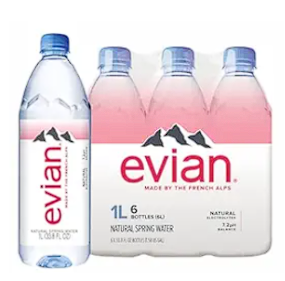
Evian water comes from the rain and snow in the French Alps. It’s naturally filtered through layers of underground rock and contains a neutral pH.
Price: $25.16 for 12 1L bottles
3. VOSS Water
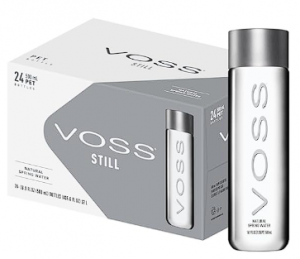
VOSS Water is bottled in Norway. It’s generated and pumped from a well and naturally filtered. It has a pH of 5.8, making it slightly acidic.
Price: $34.99 for 24 16.9 fl oz bottles
4. FIJI Water
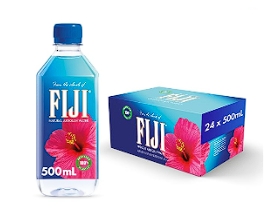
FIJI Water, which had a recall in 2024, is bottled in the Fiji Islands. Tropical rain filters through volcanic rock and then collects in a natural aquifer. It has a neutral pH.
Price: $21.98 for 24 16.9 fl oz bottles
5. Acqua Panna
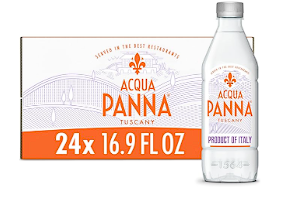
Acqua Panna, bottled by San Pellegrino, is sourced and naturally filtered in the hills of Tuscany from an underground spring in the Mugello area. It has a neutral pH.
Price: $36.99 for 24 16.9 fl oz bottles
6. Gerolsteiner
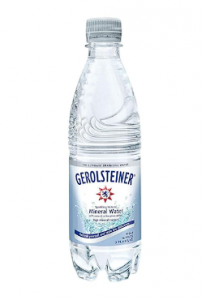
Gerolsteiner is a type of bottled mineral water that comes from the Volcanic Eifel in Germany, where it’s naturally filtered and carbonated. Its water bottles generally have an acidic pH.
Price: $65.99 for 24 16.9 fl oz bottles
7. Perrier
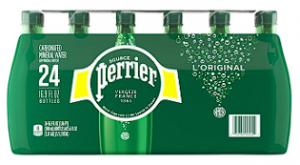
Perrier, currently owned by Nestlé, is another type of carbonated mineral water. It’s sourced and filtered near Provence in the south of France. It’s carbonated at the bottling plant and has a slightly acidic pH.
Price: $40.79 for 24 16.9 fl oz bottles
8. San Pellegrino
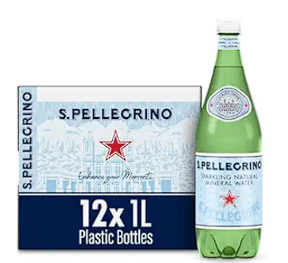
San Pellegrino, also currently owned by Nestlé, is a sparkling mineral water. It originates in a thermal spring in the Italian Alps and is naturally filtered and carbonated. It has a slightly acidic pH.
Price: $15.98 for 12 1 L bottles
The Safest Bottled Water Alternative
The safest bottled water alternative is a Tyent ionizer. Tyent ionizers rid your water of more than 200 contaminants using filters with 0.01-micron filtration, which is the same filtration level as kidney dialysis machines. But beyond creating the safest, cleanest water possible, it also produces water that helps your health rather than hurt it like bottled water can.
Thanks to their solid/mesh hybrid medical-grade titanium plates that are the strongest and thickest in the industry, Tyent gives you all the benefits of both alkaline and hydrogen water, with alkaline water infused with the most molecular hydrogen of any ionizer on the market. It also has the lowest ORP of any ionizer. The lower the ORP, the higher the antioxidant properties and immune support.
Tyent ionizers also have customizable pH settings, so you can get all the alkaline water you want, as well as other types of water that can be used for purposes like cleaning and bathing. And while Tyent ionizers are good for you, they’re also better for the environment than relying on bottled water. In addition to less plastic waste, Tyent ionizers produce less wastewater than other ionizers on the market.
Get started with your own Tyent ionizer.
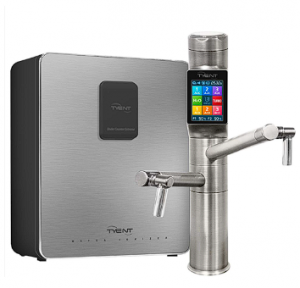
Learn More About the Safest Bottled Water
Still not ready to ditch bottled water? These commonly asked questions about bottled water may help you decide if it’s right for you.
What type of water bottle is safest?
Spring water that’s naturally filtered is thought to be the safest type of water bottle. However, bottled water is generally not the safest type of water, as most water bottle brands contain PFAs, heavy metals, and other pollutants. When drinking bottled water, you also run the risk of consuming contaminants like fertilizer and bacteria. Hydrogen-infused alkaline water produced by a Tyent water ionizer is the safest and best water to drink.
Which bottled water has the least microplastics?
According to a study of 11 globally sourced bottled water brands, San Pellegrino has the least microplastics. Gerolsteiner and Nestlé Pure Life were found to have the most.
What is the safest water to drink right now?
The safest water to drink is the hydrogen-rich alkaline water from a Tyent ionizer. Tyent uses the same filtration level as kidney dialysis machines, removing more than 200 contaminants. While providing you with ultra-filtered water, you also get all the benefits of alkaline water, like better hydration, immunity support, and improved gut health.
And since Tyent’s alkaline water is infused with more molecular hydrogen than any other ionizer on the market, you also get all the benefits of hydrogen water, including better gum health, anti-aging support, and better cognitive and athletic performance.
Safest Bottled Water: The Bottom Line
The fact is that bottled water isn’t the safest option—not for your body, your wallet, or the environment. But Tyent ionizers offer a better way to hydrate. With a Tyent ionizer, you get water that you can trust is safe and clean, free from more than 200 types of pollutants. And with the Tyent hydrogen water bottle, you get easy access to hydrogen water on the go, no plastic bottles needed.
You also get water that takes your hydration and health further. With Tyent, you get all the benefits of alkaline water and hydrogen water, from immune system support to better skin. If you’re not sure if a Tyent ionizer is right for you, Tyent makes it easy to find out with a generous 75-day trial period, though less than 1% of Tyent users ever return their ionizer. And with a Tyent ionizer, you have it for life, thanks to Tyent’s unlimited lifetime warranty.
Get started with your own Tyent ionizer.
